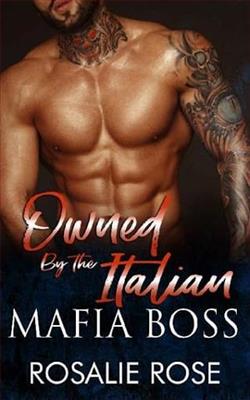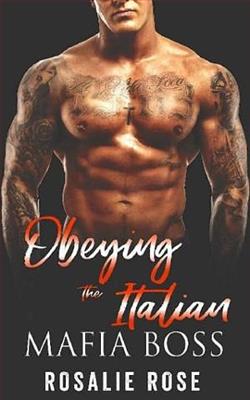Page 20 of The Strawberry Thief
Smoke
1
Saturday, March 18
In spite of the disapproval of Tante Anna and her friends, Mimi was a happy child, always laughing and smiling. She loved playing in water, or even just watching the raindrops fall into a puddle or onto a piece of corrugated iron. She didn’t mind getting wet, either, but would sit out in the rain for hours if she was allowed to, looking up into the sky and making those little chirping sounds.
Tanta Anna pretended to be horrified. ‘You’ll catch your death!’ she would always say. But that was only for effect: if Mimi had caught her death of cold, I think Tante Anna might have been relieved. But in spite of her seizures and twitches, Mimi remained unaffected by colds and bronchial complaints. She was forbidden to play alone by the Tannes, and so I often went along to watch her play in the river, or throw stones from the bank, or make little boats out of pieces of wood and drop them off the little stone bridge that separates the village from Les Marauds. Whatever might have been wrong with Mimi, she was a happy child, Reynaud. And any sibling rivalry that might have arisen between us in the case of a normal child was absent. She adored me uncritically, and I was her protector – for Father, though fond of her in his way, lived in the shadow of Tante Anna, and was fearful of her sharp tongue.
I remember one time she caught him playing with Mimi by the barn. There was a puddle of water there, almost like a little lake, which had gathered after the rains. I was splashing in the water, wearing my big rubber boots. Father was crouching beside the pool, a patch of drying mud on each knee, showing the three-year-old Mimi how to sail a little boat out of newspaper.
‘See? Like this,’ said Father, pushing the little boat with a stick; making it move forward. Mimi made one of her chirping sounds. She was still young enough to sound like a baby in those days; but those were the only sounds she made. Father never minded that – he was such a quiet man – but Tante Anna was merciless. At table it was always: ‘Sit straight, Naomi. Hold your fork properly. No, no – not like that.’ And if Mimi got it wrong, Tanta Anna would stab at the back of her hand with the tines of her own fork, so that Mimi’s little hands were always covered with red spots. If Father tried to intervene, she would say: ‘How will she learn if you humour her?’ And then she would lean towards Mimi and say, ‘Now, Naomi. Say “fork”.’ But Mimi could only make that sound – that chirping sound Tante Anna hated – and Tante Anna became convinced she was doing it to annoy her.
That day, as Tante Anna came around the corner of the barn, Mimi’s voice was especially high and excited. She stamped her feet in their rubber boots; she chirped in delight at the paper boat. And then she said, very clearly: ‘Boo!’
Father and I both looked at her.
‘Mimi said “boat”!’ I said.
Mimi laughed.
Tante Anna’s eyes went small behind the lenses of her spectacles. She was wearing that black cross of hers, and it shone in the lace around her neck. I knew that she was angry because Mimi and Father were having fun. But Father didn’t see that. He was too busy hugging Mimi, who started to laugh again. I couldn’t help it; I laughed too. Mimi was so funny, with her little face and enormous smile, like a slice cut out of a melon—
Tanta Anna came over, her mouth compressed into a barbed-wire line.
‘What is all this racket?’ she said. ‘I could hear you all the way from the house.’
That wasn’t true. We’d made hardly any noise until just a moment before then, when Mimi said her first word. Father looked awkward. He put Mimi down. Tante Anna had very clear ideas on child-rearing, which involved men staying well away from a task entrusted by God to womankind; and children being quiet and going to church – neither of which Mimi seemed capable of doing. Seeing Tante Anna, she began to chirp and gesticulate, and splash with her boots in the water, which was just the kind of behaviour Tante Anna hated most.
I tried to divert Tante Anna with news. ‘Mimi just said “boat”,’ I said.
Tante Anna looked at me. ‘Did she now?’
I nodded. I could see that my father wasn’t going to say anything. He rarely did when she was around: I think he thought it was safer.
Addressing Mimi, she said: ‘Very well. Let’s hear you say it, shall we?’
Mimi said nothing, but chirped and stamped.
‘Come on, Mimi. Your brother tells me you can say “boat”.’ Say “boat”, Naomi.’
Mimi looked at Tante Anna and twitched and chirped and stamped her feet so that brown water flew everywhere, including on Tante Anna’s little boots, which were black as her cross, and as shiny.
Tante Anna looked at me. ‘I think someone’s been fibbing,’ she said.
I shook my head. ‘Father heard it too!’
Tante Anna looked at Father. ‘Well?’
I turned to him eagerly, certain that this time, he would stand up to her, order her into the house – but my father simply looked away and stuttered like a schoolboy:
‘M-m-maybe she d-did. I c-c-couldn’t be sure.’
Tante Anna raised an eyebrow. ‘You’re stuttering again, Narcisse.’ It occurred to me then, quite suddenly, that my father often stuttered when he spoke to Tante Anna – which was seldom; he was a quiet man – although I never remembered him doing so when he was with me. ‘And people wonder why you couldn’t find another wife,’ said Tante Anna with contempt. ‘I supposeshecouldn’t be choosy. She needed a man in a hurry.’ I knew that she was speaking of Naomi Zwolaskowki, my mother, who had died giving birth to Mimi. And in spite of it all I was curious, because my mother’s name wasnevermentioned in the house; not by Father, or anyone, and her grave was in the Jewish cemetery over in Agen, and we never went there to lay flowers, although I knew my father wanted to.
At Tante Anna’s words, however, Father seemed to harden. ‘N-Naomi w-wasn’t like that,’ he said. ‘I’ll thank you n-not to s-speak of her that way.’ It was the first time I’d ever seen my father stand up to Tante Anna, even in a little way. He liked things to be peaceful at home: he flinched at the first sign of conflict. And here he was, silencing Tante Anna. I felt very proud of him.
But Tante Anna was made of steel wrapped around with barbed wire. She gave my father one of her looks – pity mingled with contempt.















